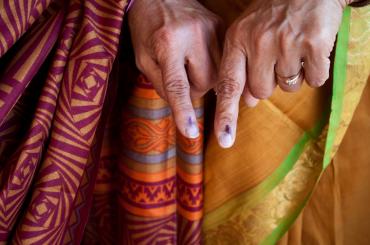
Institutions & Political Economy
-

Fear, more than hate, drives intergroup conflict in Nigeria
In the conflict between Christians and Muslims in Nigeria, fear (rather than hate) is the main driver, it is founded on misperceptions, and proves hard to change with policy.
-

Inspiring collective action to improve urban air quality in Uganda
Social competitions between neighbourhoods galvanise leadership and inspire collective action to reduce informal waste burning in urban Uganda
-

How conflict shaped social cohesion in Colombia
Conflict in Colombia, fueled by coca production, negatively impacted social cohesion, particularly in areas where militias dressed as civilians and where violence was intense
-

Leader spouses and informal influence in foreign aid
The birthplaces of the spouses of political leaders receive more than three times as much aid during the tenure of their partners than the same sub-national region would receive at other times.
-

Women’s microcredit groups empower women politically
Evidence from India shows that women’s microcredit groups stimulate women’s political participation by building their networks
-

Power-sharing institutions can mitigate violent contests for natural resource rents
Local elections in Nigeria may improve representation at the local level, contributing to a more peaceful resolution of contests for resources
-

Learn, Move, Practice: Political rotation spread knowledge and industrial policy across China
The rotation of local political leaders across cities in China facilitates the interregional diffusion of industry-specific knowledge and influences the realisation of local comparative advantage on international markets, potentially through the practice of industrial policy and familiarity with specific export markets.
-

Beyond security: UN peacekeeping's role in health and family planning
Evidence from Liberia highlights the role of peacebuilding interventions, through providing a ‘security umbrella’ that promotes local economic development and enables health services provision and access, in reducing fertility rates and improving health outcomes
-
Medication against misery: How health interventions can address ill health and also prevent conflict
How did a large-scale health intervention – the expansion of HIV antiretroviral therapy – impact the prevalence of violent events throughout Africa?